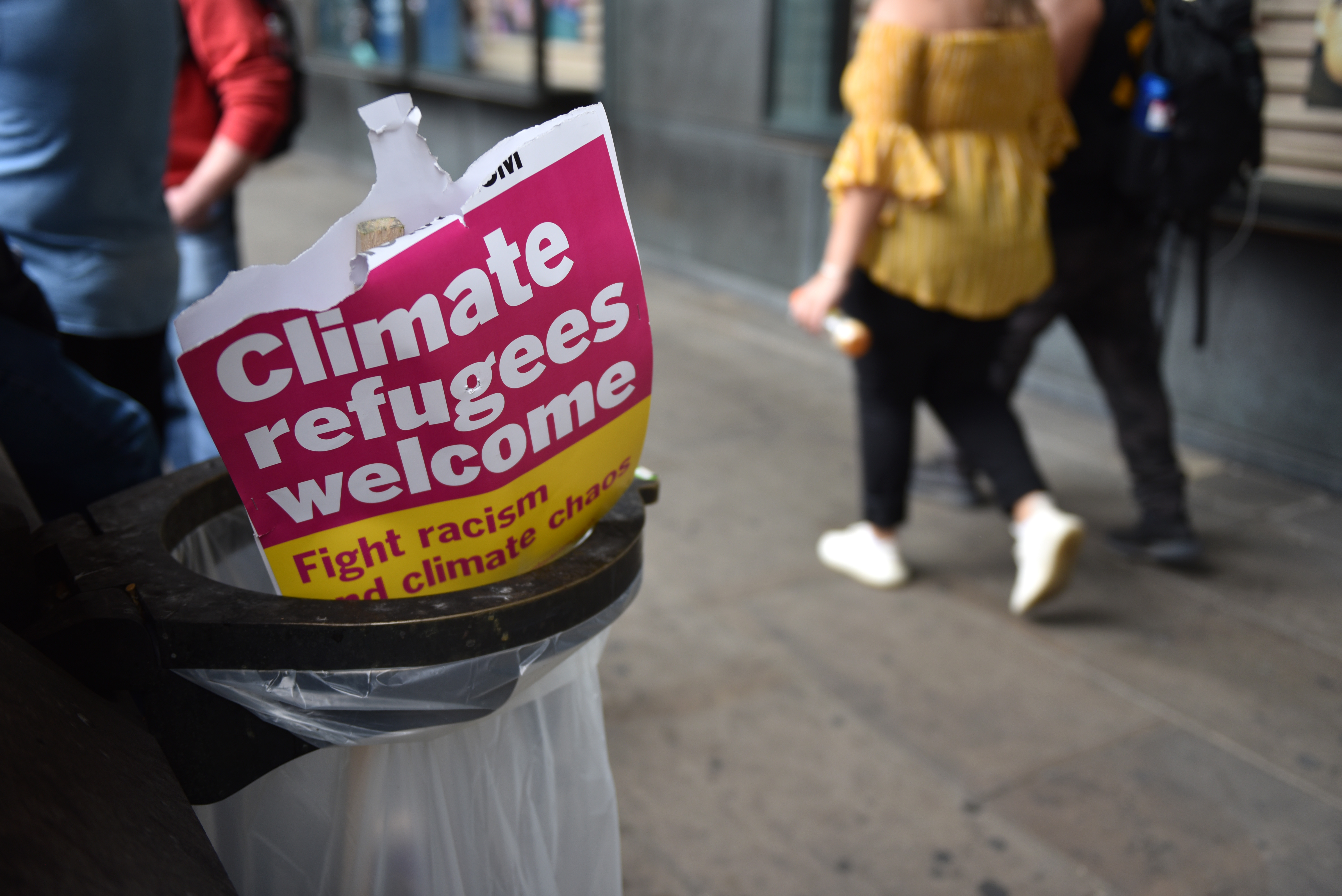Melting Ice and Rising Seas Are Already Forcing People to Leave Their Homes

Credit to Author: Brendan O’Connor| Date: Wed, 25 Sep 2019 21:00:54 +0000
For years, indigenous organizers in Oaxaca, Mexico, have articulated a demand to its government and governments around the world: the right to not migrate. "Our starting point is to understand the need for economic development, because the reason for migration is the lack of work and opportunity in people's communities of origin," the late Rufino Dominguez, co-founder of the Binational Front of Indigenous Organizations, said in 2012. Those demands were a reaction to the neoliberal policies of international trade agreements like NAFTA, but, as the behemoth Intergovernmental Panel on Climate Change (IPCC) report released on Wednesday shows, he may as well have been speaking about the effects of climate change.
Wednesday's report focuses on the effect of climate change caused by humans on the ocean and the cryosphere—that is, the parts of the planet covered in ice. Or the parts that used to be, anyway! The "Special Report on the Ocean and Cryosphere in a Changing Climate," which synthesizes about 7,000 studies from around the world, is predictably bleak: the ocean is not only warming but becoming more acidic, less oxygenated, and more hostile to life; glaciers and ice sheets are melting faster than expected, making life in the mountains increasingly difficult and raising the sea level at an accelerating rate; storms are getting worse and more frequent, rendering coastal cities and communities, home to some two billion people around the world, increasingly uninhabitable. These extreme changes are already displacing people and causing migration as people seek a more stable life.
While it's tempting to focus on the report’s worst-case future scenarios, the IPCC is also showing us how climate change is already remaking our world. One illuminating section reviews the impact of changes in the cryosphere in high-mountain areas like the Himalaya, the Andes, and the European Alps, where receding ice means a decrease in irrigation water. Some communities are able to remain in place, shifting where they graze livestock and adjusting agricultural practices; in the most extreme cases, entire villages have up and moved.
More often, studies in northern Pakistan and the Peruvian Andres found, the young people in a community will migrate elsewhere to support their families by selling their labor, often in cities. "Stress on livelihoods is an important driver of climate change induced migration," the report found; however, it also found that "migration can have mixed outcomes on reducing socio-economic vulnerability." This is due to a variety of factors, not least of which being the reception that climate migrants receive upon arrival. Even if they are able to find work and send remittances to their families, their departure can also put a strain on already overburdened families back home. Because young adults are more likely to migrate for the purpose of finding wage labor, the cryospheric communities that rely on young people, "who are assigned, by local cultural practices, to carry out the heaviest work" have found themselves lacking: "This loss of young adults has reduced the capacity of households to undertake the most demanding tasks, particularly in periods of inclement weather, accelerating the decline of herding. As a result, the human and animal populations of the communities are shrinking."
This creates a feedback loop in which migration from high-mountain areas is not only the result of changes in agriculture due to climate change, but contributes to those changes. "Sustainable management of land, water and other resources is highly labour intensive, and hence labour mobility constrains and limits the adoption of sustainable practices," the report states.
Ultimately, the report is a reminder that apocalyptic rhetoric about looming climate catastrophe obscures the political necessities of the present: the world is not actually going to end if we fail to act; it's just going to get even worse for everyone but the rich. And it's already starting.